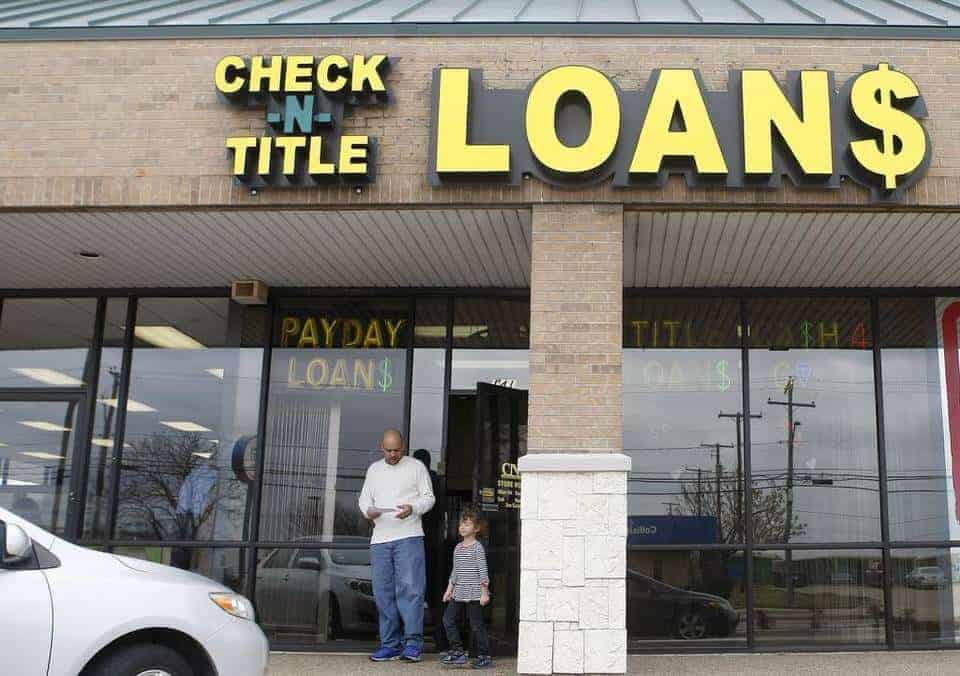Catholic Diocese of Fort Worth Statement on Proposed Federal Predatory Lending Rules
New rules proposed by the federal Consumer Financial Protection Bureau (CFPB) will protect people from predatory loans made by payday, auto title, and other short-term loan lenders, Catholic Diocese of Fort Worth Bishop Michael F. Olson said Wednesday.
“Short-term lenders charge interest rates of 600 percent and more when four out of five payday loans are rolled over or reborrowed, according to the Consumer Financial Protection Bureau,” Bishop Olson said. “We must halt the unscrupulous lenders from targeting the poor and most vulnerable among us. New rules will assist those facing life’s difficulties to seek temporary financial help from responsible lenders without becoming hopelessly indebted to the predatory lenders.”
St. Joseph Catholic Church in Arlington, a parish of the Diocese along with the Texas Catholic Conference (TCC), participated in a coalition which recently strengthened City of Arlington rules for payday, auto title, and other short-term loans.
Bishop Olson urged the City of Fort Worth to consider adopting stronger local payday lending regulations, similar to the rules already adopted by 35 other Texas cities.
“In tandem, good local payday lending regulations and the proposed federal rules will greatly assist those in desperate financial straits from becoming hostages of unscrupulous payday lenders,” Bishop Olson said.
Catholic Charities Fort Worth (CCFW) has long advocated for regulations in the payday lending industry.
“We at CCFW see the impact of lack of regulations in the payday lending industry and the impact to people in need,” shares Heather Reynolds, CEO of CCFW. “Low income workers often struggle to provide for their families because of the gap between what they make and a living wage. Unaware of the disadvantages of payday lending, families often turn to payday lenders to fill this gap, trying to pay for necessary medications for their children or to put food on the table for their families. Many end up at our doors because they cannot afford the interest from these loans.
“We as a community must demand regulations on this industry, similar to banking, while also offering safer options for people in need in our community.”
Texas Catholic Conference officials described the proposed rules as a “positive step.” http://www.txcatholic.org/#!payday-lending-regs-go-in-right-directio/csdj
The CFPB regulations intend to end payday debt traps by requiring lenders to take steps to make sure consumers have the ability to repay their loans, according to the TCC analysis. The proposed rule would also cut off repeated debit attempts that rack up fees. These strong proposed protections would cover payday loans, auto title loans, deposit advance products, and certain high-cost installment and open-end loans. Advocates have expressed some concern that there are potential loopholes in the rules that could be exploited by lenders to extend high cost loans and escape protections intended to assess the borrower’s ability to repay.
Texas Catholic bishops, through the TCC, have advocated for stronger state regulations of the short-term lending industry since 2009.
Bishop Olson urged people of all faiths to register comments with the federal Consumer Financial Protection Bureau in support of the new regulations. Comments can be made at https://www.regulations.gov/ – !home through September 14, 2016. The site provides instructions on how to submit comments. An overview of the proposed regulations is also available.
A 2015 study by the League of Women Voters of Texas reported the staggering cost of short-term loans.
“In 2015 the estimated initial cost of financing a single payment 2-week $500 payday loan is $126.92 (660% annual percentage rate [APR]) while that of a single payment 30-day $500 auto title loan in Texas is $137.63 (310% APR),” the League report said. “With multiple renewals, fees and interest may surpass the loan principal. For example, when a $500 payday or auto title loan has been refinanced three times, the fees and interest exceed $500−$510 and $549 respectively−and the principal is still owed.”
The predatory loans target the poor and vulnerable, the League report found. “In 2013, two-thirds of Texans who had ever used a payday loan were younger than 45 years of age, while the majority of those who had ever used an auto title loan were 45 years of age and older. Two-thirds of borrowers lived in metropolitan areas. African American and Hispanic Texans used payday (70%) and auto title (62%) loans at rates disproportionately high compared to their share of the state’s population (51%). One-third of all payday and auto title loan borrowers had obtained some college education. Half lived in households with annual incomes between $15,000 and $50,000, and two thirds were employed. One in six payday and title loan borrowers in Texas were disabled,” the report said.
Full Release Available Here.

